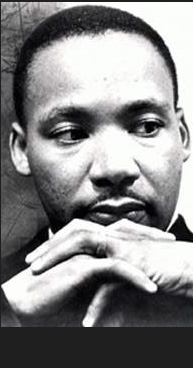Loyola students and faculty voiced opinions and frustrations Monday about the university holding classes on Martin Luther King Jr. Day and the lingering racial tones surrounding Hurricane Katrina and the rebuilding of New Orleans.
Ranika Sanchez, president of BSU, said students approached her about the situation before classes began earlier this month. Some students suggested sitting out of class in protest, but the organization decided to discourage students from skipping classes, she said.
“We just want to make sure it’s because of Katrina, and it won’t happen again,” Sanchez said.
Lisa Martin, director of the CIU, criticized the administration’s decision to hold classes during Martin Luther King Jr. Day but not hold classes during Mardi Gras.
“Isn’t it interesting we’re working on a national holiday while we’re taking off a local holiday for a fake king,” she said.
Although University President the Rev. Kevin Wildes, S.J., did not address the issue of holding classes at the rally, Provost Walter Harris justified the administration’s actions as being based on atypical circumstances and the higher purpose of education.
“I worked with Dr. King for many years, and one of the most important things he talked about was getting a good education,” Harris said. “Martin Luther King would be proud of our being in class today. This is a one-time event. Fast decisions were made and had to be made.”
Harris said that although he would have preferred to not have classes, the decision was necessary given the university’s choice to shorten the semester in order to offer students a second spring semester.
James Olivard, marketing senior, said he understands the difficult decision the administration had to make.
“It’s a catch-22. You want Spring [semester] II to catch up on classes and you want your breaks,” Olivard said.
Troave Profice, communications senior, said she boycotted class not to sleep-in, but to participate in celebrating a holiday she thinks is more important than Mardi Gras.
“I don’t need the university to declare it a holiday to recognize it myself,” said Profice. “If it wasn’t for MLK, I wouldn’t be at this school.”
Students and faculty urged listeners to keep the dream alive, tell the true story of injustice and continue fighting for equality.
Speakers at the rally also could not ignore the racial tones pervading the city after Hurricane Katrina, such as the incidents of shootings at two second-line parades.
The state and federal government’s slow reactions immediately after the hurricane brought to light the deeper issues of oppression, ignorance and poverty, said Jacque Bordere, biology freshman.
“It was only after this monumental disaster, the whole world saw the televised manifestation of what was happening to the people of New Orleans,” Bordere said. “If you really don’t want to sleep on the dream, don’t sleep on the city.”
Naomi King can be reached at [email protected].








